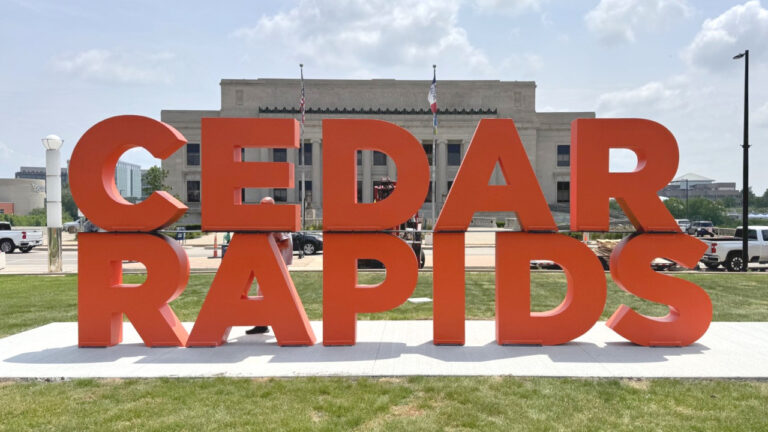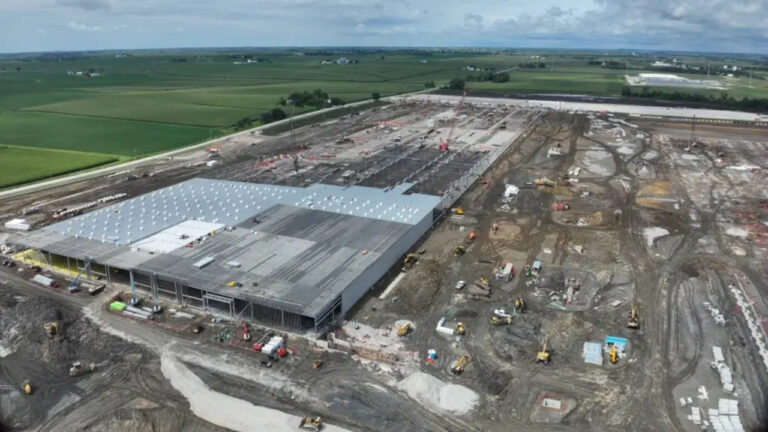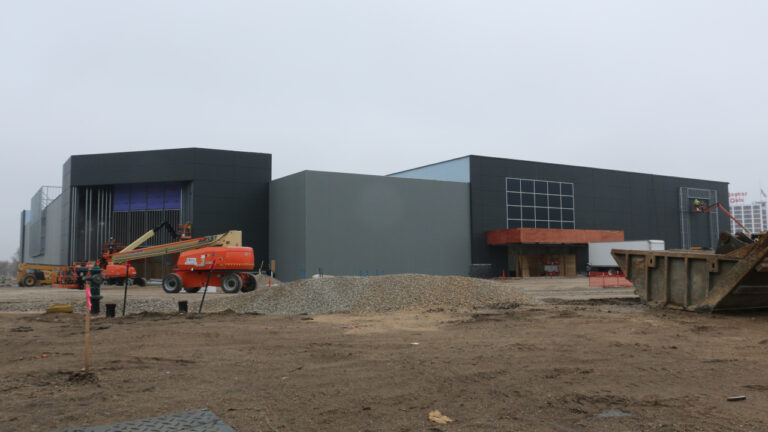As Google reportedly considers building its second data center complex in Linn County, county supervisors are moving ahead with a study that will provide a more complete picture of the county’s water resources.
In a work session meeting Monday, Oct. 6, supervisor Kirsten Running-Marquardt revealed that Linn County was recently approached with two inquiries regarding possible data center projects in the unincorporated areas of the county. One, she said, was an anonymous inquiry that “I don’t believe has gone any further.”
But the other was from Google, asking if the county had an ordinance that would cover data centers.
“We met with Google individually,” Ms. Running-Marquardt said, “and they have a plan in place to build a large, six-building data center complex next to the Duane Arnold nuclear plant, which they’re considering.”
No timeline or location has yet been revealed, since the plan remains in its initial stages. Google hadn’t responded to a request for more information as of midday Tuesday.
She also noted that Google has been “working with” Duane Arnold in their efforts to bring the plant back online.
The county is currently working on three ordinances connected to these developments – a specific ordinance related to data centers, an ordinance governing the development of natural gas power plants, such as the plant being proposed by Alliant Energy, and a host community agreement that would be applied to new or restarted nuclear power plants.
“These three projects are all related to data centers and the power and the water that they’ll need,” Ms. Running-Marquardt said.
Projects like Google’s proposed data center, she said, could require an average of 12 to 14 million gallons of water per day, and a natural gas power plant could use another 360,000 gallons of water per day. That’s on top of two other data center projects, one by Google and another by QTS, already under construction in southwest Cedar Rapids, that will also consume significant amounts of water for their cooling needs.
“Water is a part of our critical infrastructure,” she said, “We want to take in considerations of where data centers would be getting their water from, how much they would need, and it became obvious that we needed to perform a study to get an assessment and a baseline of our current water resources, including our rivers and aquifers. This is a critical time to get this information before more development moves forward.”
Even though several systems are in place to attempt to reduce data centers’ water usage, such as closed-loop systems and use of “brown water” from other sources, Ms. Running-Marquardt proposed that the county develop a water resources and water balance study to evaluate existing groundwater and surface water supplies, and whether those resources are sufficient to meet development needs throughout Linn County, both now and in the future.
She said Cedar Rapids is “on board” to get information from such a study.
“They also very much care about water availability for the residents here,” she said. “We can support economic growth for our area and do exciting things. We can promote jobs and do it in a safe and fair way. The long-term community impact, especially with water and pollution, will have long-lasting impacts for our future generations. This study will give us a path forward on water usage.”
The board voted unanimously to approve a request for proposals (RFP) for the study, which will be paid for by Google and completed by an independent firm.
Darrin Gage, Linn County’s director of policy and administration, said it’s “not typical” for county staff to approach the board for approval of an RFP request.
“This one’s out of the ordinary,” he said, “It’s the first time the county is considered a data center, and the board wants to make sure that all of the things that are surrounding it are discussed in public.”
He also noted that “Google has been nothing but receptive, but it’s a little bit of a chicken and egg situation. With the funding agreement that they’ve agreed to verbally in principle, they want to see the approved RFP so that they can write it into the funding agreement.”
County officials said they hope to have the water resource study completed by spring.









